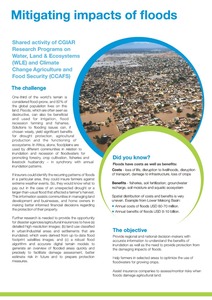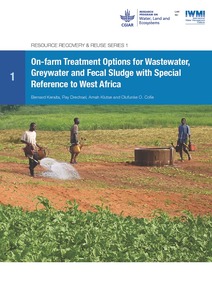Location
The International Water Management Institute (IWMI) is a non-profit, scientific research organization focusing on the sustainable use of water and land resources in developing countries. It is headquartered in Colombo, Sri Lanka, with regional offices across Asia and Africa. IWMI works in partnership with governments, civil society and the private sector to develop scalable agricultural water management solutions that have a real impact on poverty reduction, food security and ecosystem health. IWMI is a member of CGIAR, a global research partnership for a food-secure future.
IWMI’s Mission is to provide evidence-based solutions to sustainably manage water and land resources for food security, people’s livelihoods and the environment.
IWMI’s Vision, as reflected in the Strategy 2014-2018, is ‘a water-secure world’. IWMI targets water and land management challenges faced by poor communities in the developing countries, and through this contributes towards the achievement of the United Nations Millennium Development Goals (MDGs) of reducing poverty and hunger, and maintaining a sustainable environment. These are also the goals of CGIAR.
IWMI works through collaborative research with many partners in the North and South, and targets policymakers, development agencies, individual farmers and private sector organizations.
Resources
Displaying 196 - 200 of 959Mitigating impacts of floods
On-farm treatment options for wastewater, greywater and fecal sludge with special reference to West Africa
Proceedings of the Workshop on Flood-based Farming for Food Security and Adaption to Climate Change in Ethiopia: Potential and Challenges, Adama, Ethiopia, 30-31 October 2013
Proceedings of the Workshop on Irrigation in West Africa: Current Status and a View to the Future, Ouagadougou, Burkina Faso, 1-2 December 2010
Revitalizing canal irrigation: towards improving cost recovery
Cost recovery from irrigation in almost all the countries presents a dismal picture. Low cost recovery coupled with declining government finances has led to the deterioration of both the quality of the built infrastructure and institutions managing and governing such infrastructure. This has created a vicious circle of low cost recovery, poor maintenance of infrastructure, inadequate and unreliable water supply, inefficient and corrupt institutions, and unwillingness of the farmers to pay.







